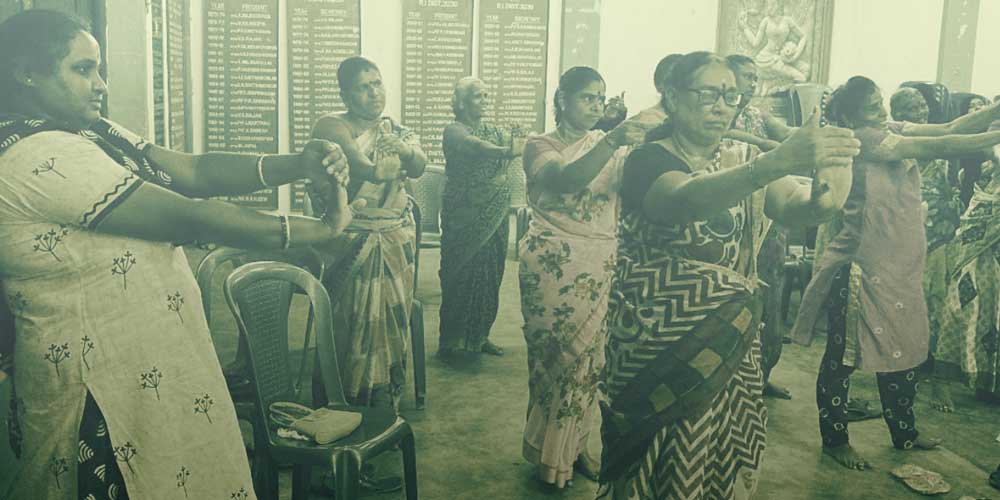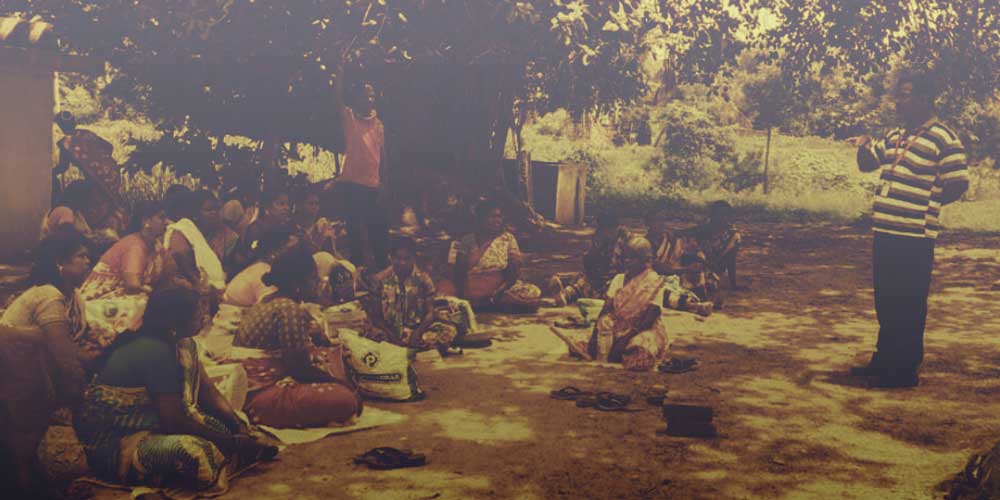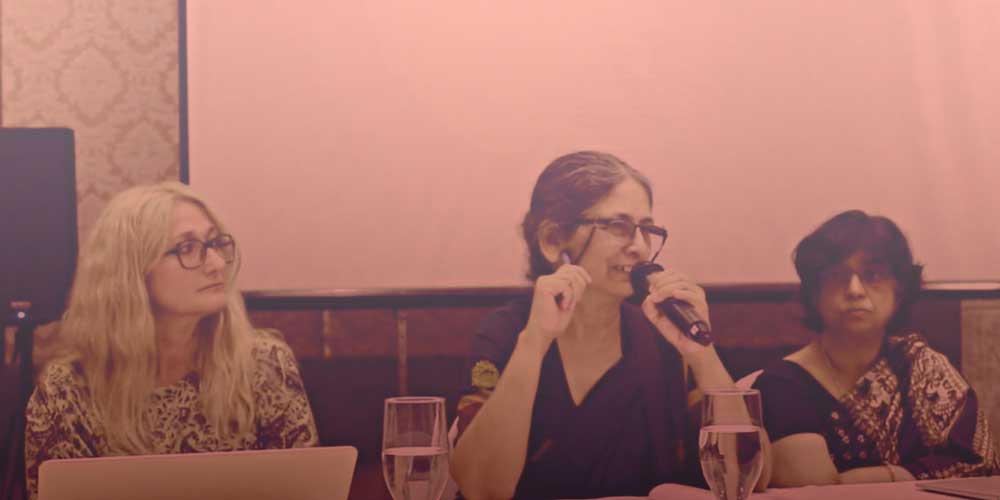Help us build a fairer future!
Cividep India aims to create safe and just workplaces for India’s young workers. We work with workers’ organisations, civil society, businesses and governments to protect labour rights and promote responsible business practices. Want to know how you can become a changemaker?

Ignite Change
Enable
Empower workers by informing them about workplace rights and well-being. We educate low-wage workers on their workplace rights & occupational health. Thousands gained insights into social security benefits and the importance of collective bargaining through our learning sessions. Support us in organising impactful sessions that go a long way in workers securing dignified workplaces.
Enhance
Help workers when they need us most. We assist in resolving workplace grievances — from unpaid wages to discriminatory shop floor practices. We offer counseling, mental health support, and help remedy wage theft, social security claims, and workplace accidents. This holistic approach has impacted several women workers. Work with us to solve their woes so they feel safe at work.
Echo
Join us in amplifying workers’ voices through our research initiatives. Our studies shed a spotlight on workers’ lived experiences. We take these insights to global corporations, governments, and fellow civil society organisations. These studies spark conversations and collaborations with them. Stand with Cividep to amplify workers’ voices through impactful research reports.
Engage
Aid our efforts to improve the world of work. Engaging stakeholders — NGOs, academia, industries, media, worker groups — we have triggered investigations, formulated guidelines, hosted roundtables, and catalyzed establishment of mandatory creches in garment factories. Back our drive to tell worker-centric stories and bring about change in the lives of low-wage workers.
How Do Learning Sessions Help Workers?
Knowledge and outreach sessions conducted by Cividep’s field teams play a vital role in enabling workers across industrial clusters. These sessions address a multitude of issues faced by workers, ranging from layoffs and job insecurities to health challenges and lack of awareness about their rights. In addition, Cividep keeps in touch with worker communities through visits and outreach programmes. Here’s how our interventions in 2023 benefitted workers:
Worker Support
- Training sessions to assist laid-off workers in accessing entitlements such as Provident Fund
- Legal awareness sessions on collective bargaining and grievance mechanisms
- Running helplines like the India Labour Line to address issues such as wage theft and exploitation
Worker Education
- Creation of informative guides raising awareness about health and well-being in factories
- Workshops on government health schemes and first aid training
Community Building :
- Innovative initiatives like puppet shows and discussions on gender violence to strengthen community bonds
- Self-defense sessions and leadership workshops to empower workers
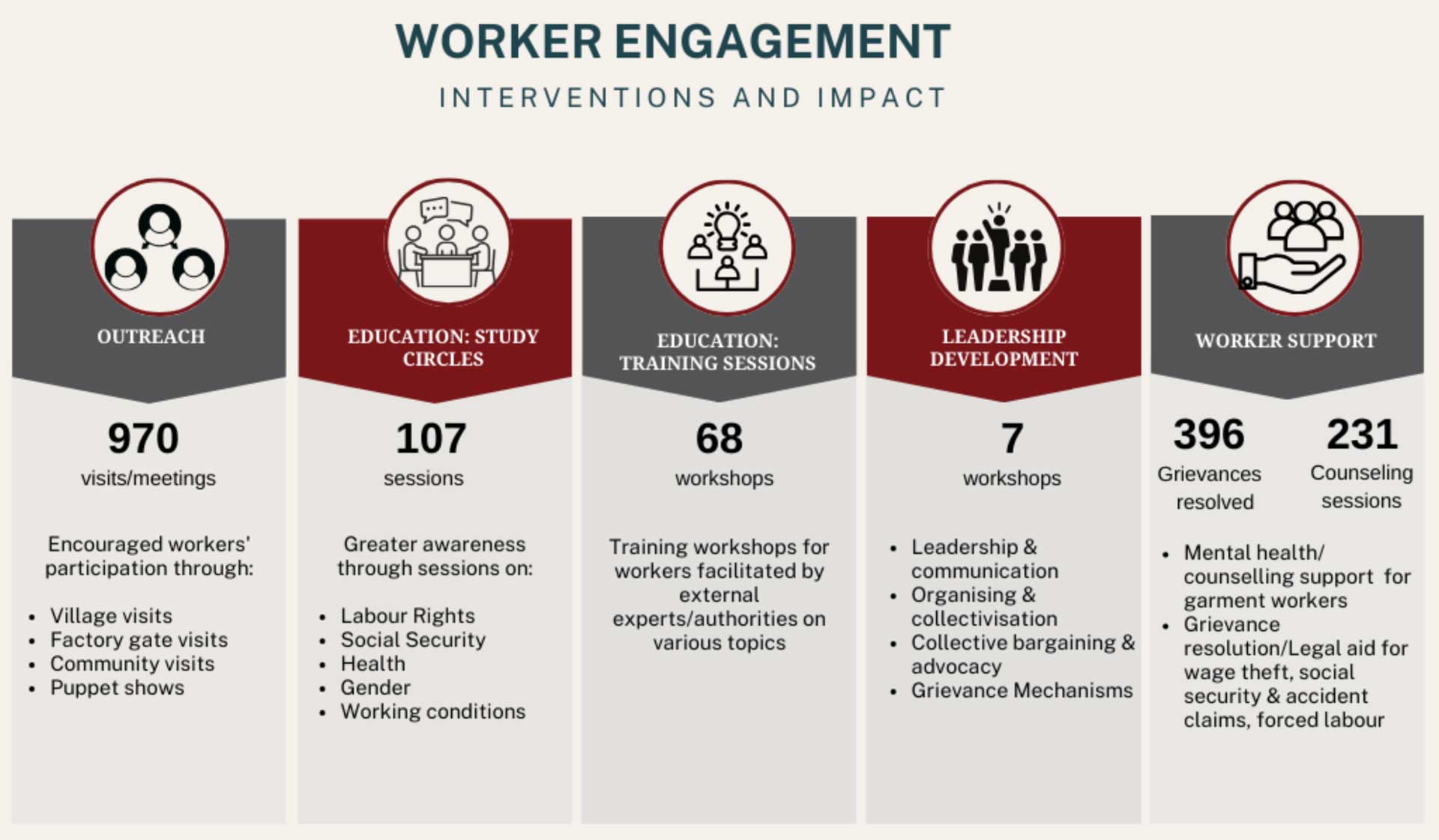
Cividep’s holistic approach not only addresses immediate challenges faced by workers but also fosters long-term resilience and empowerment within communities. With your support, Cividep can continue its impactful fieldwork, improving workers’ lives across various industries and geographies.
How Do We Help Solve Grievances?
The Ambur Case Study

Cividep recently completed 10 years in South India’s leather manufacturing hub to bring together low-wage workers & create awareness about their rights.
01

How did this come about in rural Tamil Nadu? All people wanted were stable jobs and didn’t know how to ask for better working conditions. It required a lot of trust-building with the local communities, and myth-busting and awareness creation.
02

A recent study by Cividep shows that precarious working conditions for leather workers exist even now. Many lack contracts or employment letters, making it difficult to access social security benefits.
03

Due to the tireless efforts of a dedicated Cividep team that began supporting leather workers a decade ago, our Worker Resource Center is an essential hub for the area’s diverse workforce. It is a space where home-based workers, factory employees, and tannery workers come together.
04

Today, the leather homeworkers have organised themselves into a 600-member-strong women’s collective that demands recognition and higher pay; factory workers also seek their entitlements while Cividep continues to reach out to brands and multi-stakeholder initiatives to improve transparency & human rights. Help us sustain these vital support systems that are relied on by workers and their families.
05
How Does Research Help Workers?
Study on Garment Workers Find Place In UN project
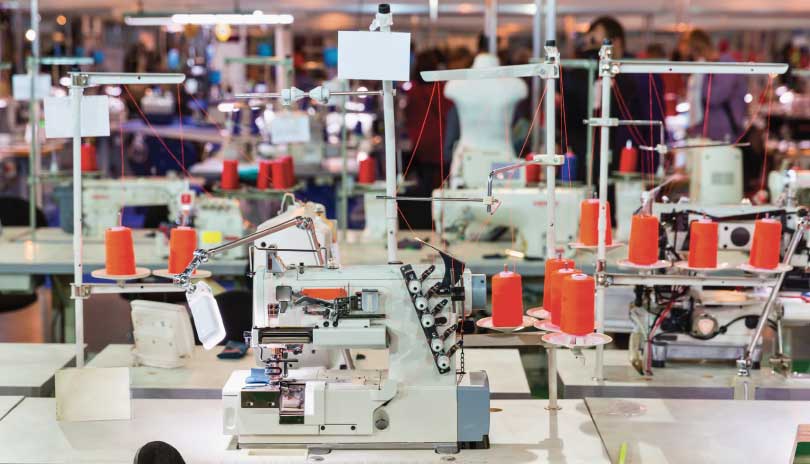
When Rathna, a disabled garment worker, fell down a staircase at her factory, she got inadequate health care. Even when she filed a grievance to help her get state health insurance, the management didn’t budge until a worker collective intervened. Cases like these point to the importance of analysing workplace grievances.
01
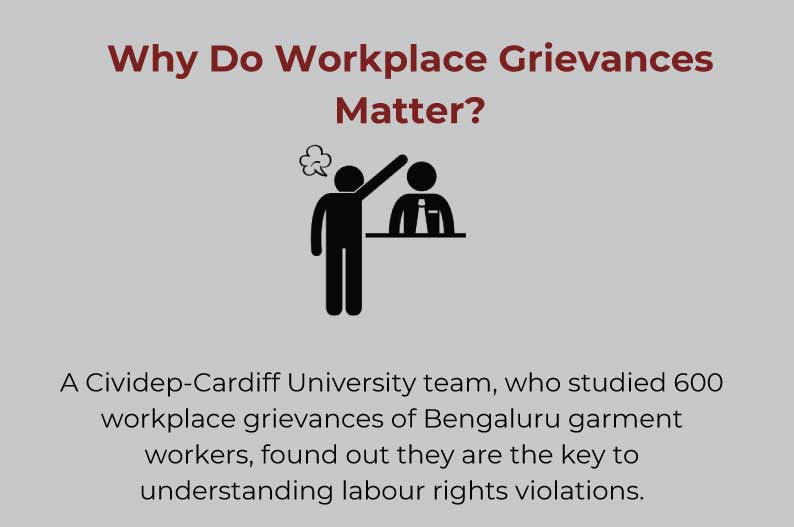
The ‘Operationalising Labour Rights (OLR)’ research project undertaken by a team from Cividep India, Cardiff Business School, and WISERD, studied 600 workplace grievances of Bengaluru garment workers and found out they are the key to understanding labour rights violations.
02
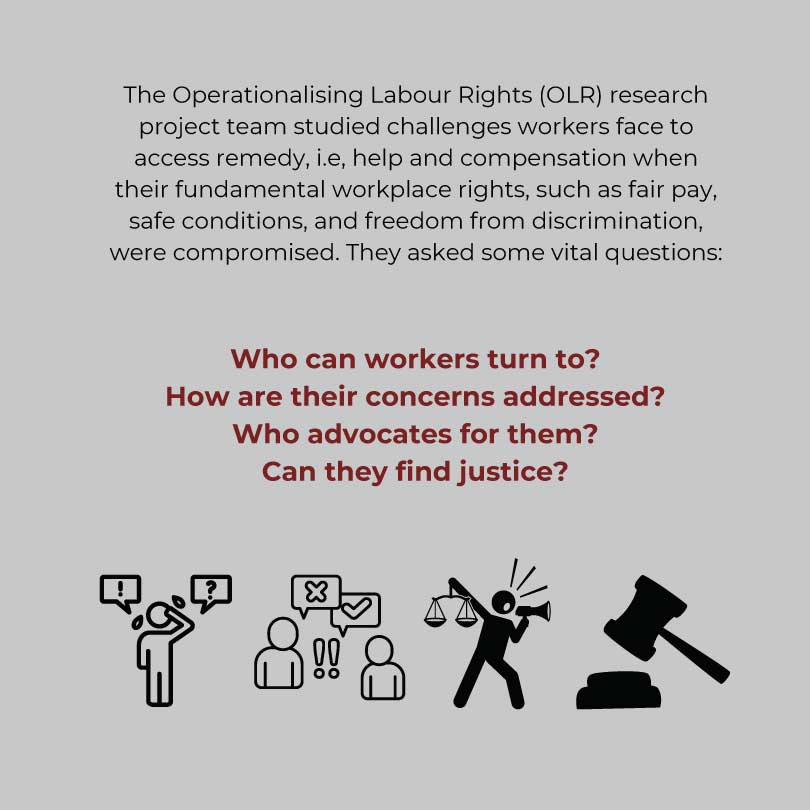
By analysing the grievances reported by Bengaluru’s garment workers, they uncovered whom workers approach with their problems, how concerns are addressed, who advocates on their behalf, and the likelihood of justice. In a nutshell, the research captured the hitherto unexplored power dynamics inside factories.
03
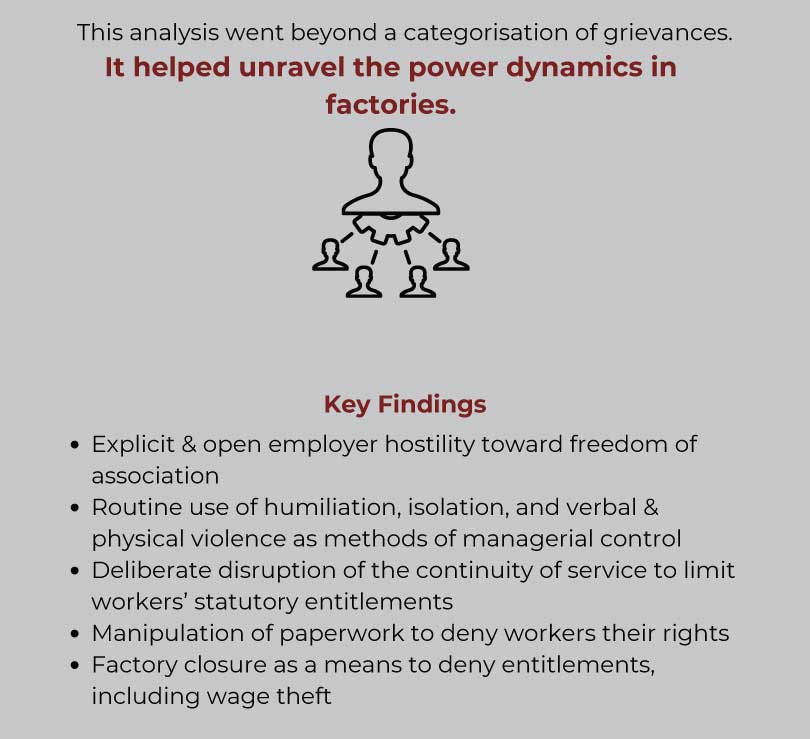
These insights, shared with academics and stakeholders, have significant implications for industry leaders and policymakers. OLR findings have already contributed to the UN OHCHR Accountability and Remedy Project (ARP III). You can help us conduct more meaningful research to raise awareness about working conditions and drive policy changes.
04
These Images Are Worth A Thousand Words: Why Worker Stories Matter
Make a Donation
FAQs
- Do I get a tax exemption for my donation? All donors to Cividep receive a 50% tax exemption under section 80(G) of the Indian Income Tax Act.
- When will I get the 80(G) certificate? For online contributions, tax certificates are sent immediately. For Cheques and NEFT contributions, certificates are shared after three weeks, either by email or to your address.
- What details are required to avail of the certificate? We collect personal information to process payments and communicate with donors. This may include name, amount donated, address, telephone number, email address, and UID details.
- What will Cividep do with my donation? Your contribution helps run programmes that improve rights of low-wage workers across industries. To know in detail, read our annual report, or check the ‘About Us’ page.
- Is Cividep India a registered charitable organisation? Cividep is registered as a Society under the Karnataka Societies Registration Act 1960.
- Do you accept cash donations? We do not accept cash donations due to reasons of transparency and accountability.
- What are the other ways I can donate? Donors can send a cheque to the organisation’s mailing address given below. Write to us at donate@cividep.org and we will assist you.
For more details, write to us at donate@cividep.org
Terms of use
Welcome to Cividep India (hereinafter referred to as the “Company”). By accessing or using our platform located at www.cividep.org (hereinafter referred to as the “Platform”), you agree to comply with and be bound by the following terms and conditions of use (hereinafter referred to as the “Terms of Use”). Please read these Terms of Use carefully before accessing or using the Platform. If you do not agree to these Terms of Use, you may not access or use the Platform.
- Acceptance of Terms: By accessing or using the Platform, you agree to be bound by these Terms of Use and all applicable laws and regulations. If you do not agree with any of these terms, you are prohibited from using or accessing this site.
- Use License: Permission is granted to temporarily download one copy of the materials (information or software) on the Platform for personal, non-commercial transitory viewing only. This is the grant of a license, not a transfer of title, and under this license, you may n
- Modify or copy the materials;
- Use the materials for any commercial purpose or any public display (commercial or non-commercial);
- Attempt to decompile or reverse engineer any software contained on the Platform;
- Remove any copyright or other proprietary notations from the materials; or
- Transfer the materials to another person or “mirror” the materials on any other server.
- Disclaimer: The materials on the Platform are provided on an ‘as is’ basis. The Company makes no warranties, expressed or implied, and hereby disclaims and negates all other warranties including, without limitation, implied warranties or conditions of merchantability, fitness for a particular purpose, or non-infringement of intellectual property or other violation of rights.
- Limitations: In no event shall the Company or its suppliers be liable for any damages (including, without limitation, damages for loss of data or profit, or due to business interruption) arising out of the use or inability to use the materials on the Platform, even if the Company or an authorized representative has been notified orally or in writing of the possibility of such damage.
- Privacy: Please review our Privacy Policy for information on how we collect and use data.
- Governing Law: These Terms of Use shall be governed by and construed per the laws of India, without regard to its conflict of law provisions.
- Modifications: The Company may revise these Terms of Use for the Platform at any time without notice. By using the Platform, you are agreeing to be bound by the then-current version of these Terms of Use.
REFUND & CANCELLATION POLICIES
At Cividep India, we highly appreciate your backing and dedication to our cause. We understand that circumstances may arise where you may need to request a refund or cancel a donation. Here’s how you can do it:
Refund: In the unlikely event of an incorrect donation or if you decide to withdraw your donation, we are committed to addressing your concerns promptly and openly. The timing of the refund will depend on the payment method used during the transaction. To start a refund request, kindly email us at donate@cividep.org, and include the following information:
- Donation particulars and receipt
- Your details that are necessary for processing the refund
Cancellation: If you choose to cancel your donation, please inform us as soon as possible. Your request will be handled according to the following procedure:
- To cancel a donation, write to donate@cividep.org.

